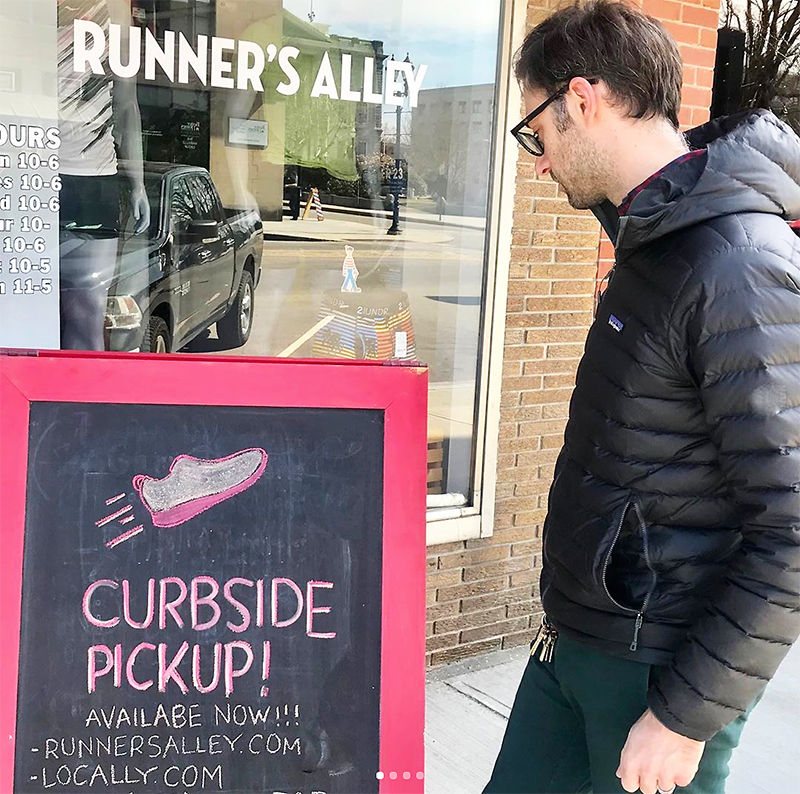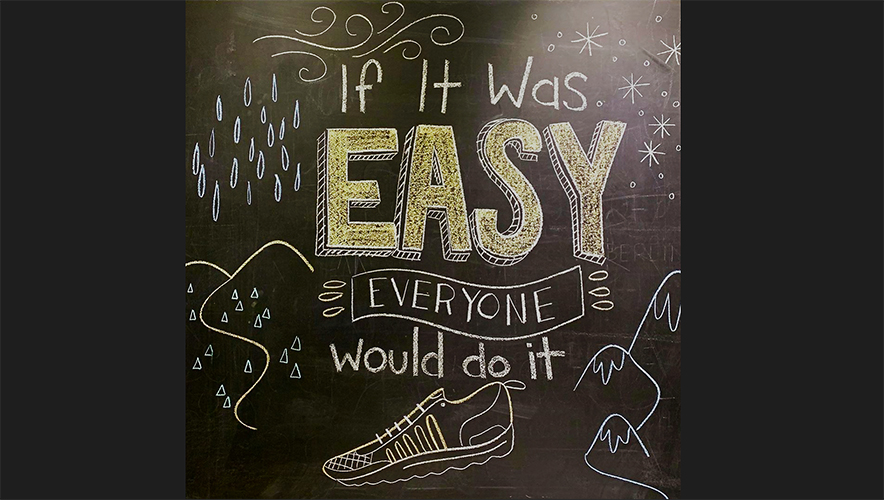By Thomas J. Ryan
<span style="color: #969595;">Four days after its second annual RIA Kick Show was canceled, the Running Industry Association (RIA) has come out with a COVID-19 prep guide for the run specialty community to basically survive the coronavirus. And Terry Schalow, executive director of the RIA, said the organization has much more coming as the close-knit run specialty community has quickly come together.
On Tuesday, Schalow told SGB Executive that the RIA would be sending out a national survey to some 500 retailers across the run specialty channel to explore how they’re managing amid the crisis. He noted there’s been some word of stores already being forced to undergo layoffs or to furlough employees. In some cases, store owners have reached into their savings to continue to pay staff, but the survey seeks to gain better data for the industry to make appropriate decisions.
“It’s heartbreaking that you have these store owners that have built up these incredible businesses and feel they have been incredibly loyal to the people working for them,” said Schalow. “And when they’re having to furlough or lay-off employees who have families, or you see an owner drawing from their own savings to be able to continue to pay their employees while their stores are closed, these people are losing everything. In the end, it’s absolutely heartbreaking.”
…
The retailer survey seeks to see how many stores have been closed. It also explores how many retailers have been able to keep their staff employed and how long they can continue to do so. Schalow said, “In other words, if this continues, how long can they hold out before they might get to a point where they have to shutter permanently. These are things that we just don’t know, collectively.”
The short survey will also explore what stores are doing specifically to try to keep sales going. The COVID-19 prep guide includes some suggestions to drive e-commerce solutions amid store closures and calls for social distancing.
Borrowing from the restaurant industry, Schalow said some stores are rolling out curbside pickup as part of a bigger push around online delivery. Said Schalow, “We’re seeing those strategies being employed, and we hope that those gain momentum. We’re trying to provide a lot of resources, and point retailers who are not familiar with those platforms, in the direction that can help retailers get up to speed quickly.”

Tips for marketing to communities include graphics illustrating the need to stay six feet apart while running to maintain a safe social distance, which is also included in the initial prep guide.
Schalow said his organization has heard that stores that have an active online platform and a “solid marketing platform” with ways to reach their running community through social media or e-mails are faring better in the current environment. He said, “It’s certainly not replacing their foot traffic, but it’s helping keep the lights on. And we’re hearing anecdotally that if you’ve got some combination of that, then there is some level of success out there, but how pervasive that is, we don’t know.”
<span style="color: #969595;">Overall, the data from the survey potentially could be used as a measuring stick to better assess whether stores are progressing and making the right moves. Said Schalow, “The more data we can provide provides for better clarity and helps people understand the full context of what it is that we’re experiencing right now because it’s so fluid. We can start to see trends, and that helps everyone make the right decisions. The more information that we can provide, not based on anecdotal or rumor but actual hard data, I think is critical.”
The survey’s results are expected to be delivered by April 1, 2020. The short survey is then expected to be repeated in about three to four weeks to see if the trends improve.
The retail survey will be followed by a survey of brands supporting the industry similarly exploring how they’re handling the coronavirus fallout. Said Schalow, “The brands are doing a great job and jumping in and supporting retailers with programs and extended dating and what you have to do to try to keep them as profitable as possible and keep business flowing as much as they can. But brands have their own pressures. We want to understand what those are, too.”
Indeed, RIA’s COVID-19 prep guide includes a Brand Support Reference Guide, a one-stop reference to review extended invoice terms and other brand offers to provide support for retailers.
…
A host of vendors have already included their support plans for retail accounts. Brooks, the leading player in the footwear space, is providing an extra 60 days dating for all open invoices and orders through April 30 while also offering a 15 percent discount on all orders placed been March 23 to April 30. On, the Swiss running shoe brand, is only requiring accounts to pay “as they are able to do so.” Many brands, such as Nike and Asics, are working with accounts on a case-by-case basis.
One of the issues being explored with vendors is supply chain disruption. While the tariff dispute placed challenges on products shipping from overseas, the coronavirus may also be impacting distribution from brand warehouses and deliveries direct-to-consumers. Retailers would also want an early indication into potential delays of new product launches for the coming seasons when fresh products are required to stir interest at retail. Said Schalow, “They’ve still got to have product to sell.”
Also expected to be explored with the brand survey are vendors’ strategies for reps supporting stores in the field with the current “shelter at home” and “stay at home” restrictions. The brand survey will also explore how the COVID-19 crisis impacts operations, including cancellations and over-inventoried situation, and any potential financial hardships.
“RIA’s purpose is to help understand the entire scope, not just for the larger brands or the big footwear brands but also the smaller accessory brands,” said Schalow. “Those are the ones that are being hit by this. It’s not their intent, but a lot of retailers will pay the bills to keep the product flowing for the brands that are critical to their business. And as cash flow dwindles, they may not be able to pay invoices from some of their smaller brands. And retailers need to understand what that might mean for these smaller brands and how damaging that can be. Our purpose is to help the entire channel understand the full context of what’s happening so they can make decisions that are appropriate and help keep the channel as healthy as possible.”
On the brighter said, Schalow said that while he doesn’t see another running boom, a surge in people running has been seen in recent days as many individuals are being forced to work from home or laid off with gyms and fitness studios temporarily closed.
Stores should also take advantage of the strong trend toward local shopping that will likely be amplified with the focus on staying at home. Said Schalow, “Running stores are uniquely positioned to take advantage of that because the local running community is going to be going out there.”
Finally, he noted said running tends to perform better comparatively in down economic times should the environment remain challenging for an extended period.
“When things get tight, they may dump their gym memberships, but they’ll go for a run because you just need a pair of running shoes,” said Schalow. “Now, what we’re going through is an anomaly and beyond proportion, but I think the channel might be a little bit more resilient than some other channels. Running stores have a fighting chance here.”
…
The COVID-19 prep guide also includes links to financial assistance and tax relief as well as human resources and information on employee support. RIA has also started an e-mail distribution list specifically created for users of the COVID-19 Resource Guide to keep everyone updated on a regular basis.
The prep guide is also being offered complimentary to both members and non-members given the extraordinary challenges the crisis has placed on the channel. Said Schalow, “What we see is a very, very critical time. We’ve got to keep our stores running. And if we keep our stores running, the brands stay healthy.”
RIA’s COVID-19 Resource Guide is available here.
Photos courtesy Runners Alley, Portsmouth, NH
















